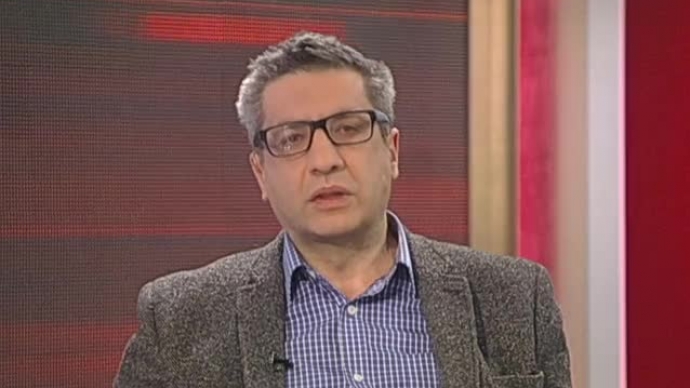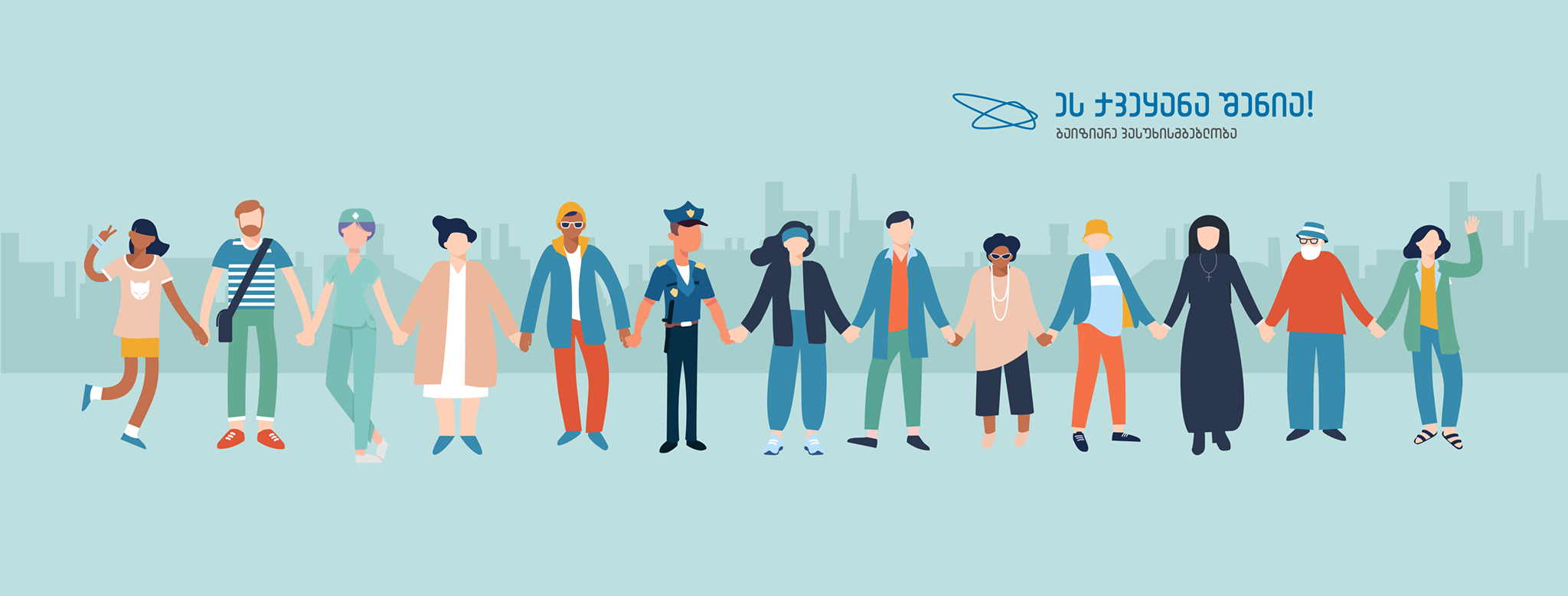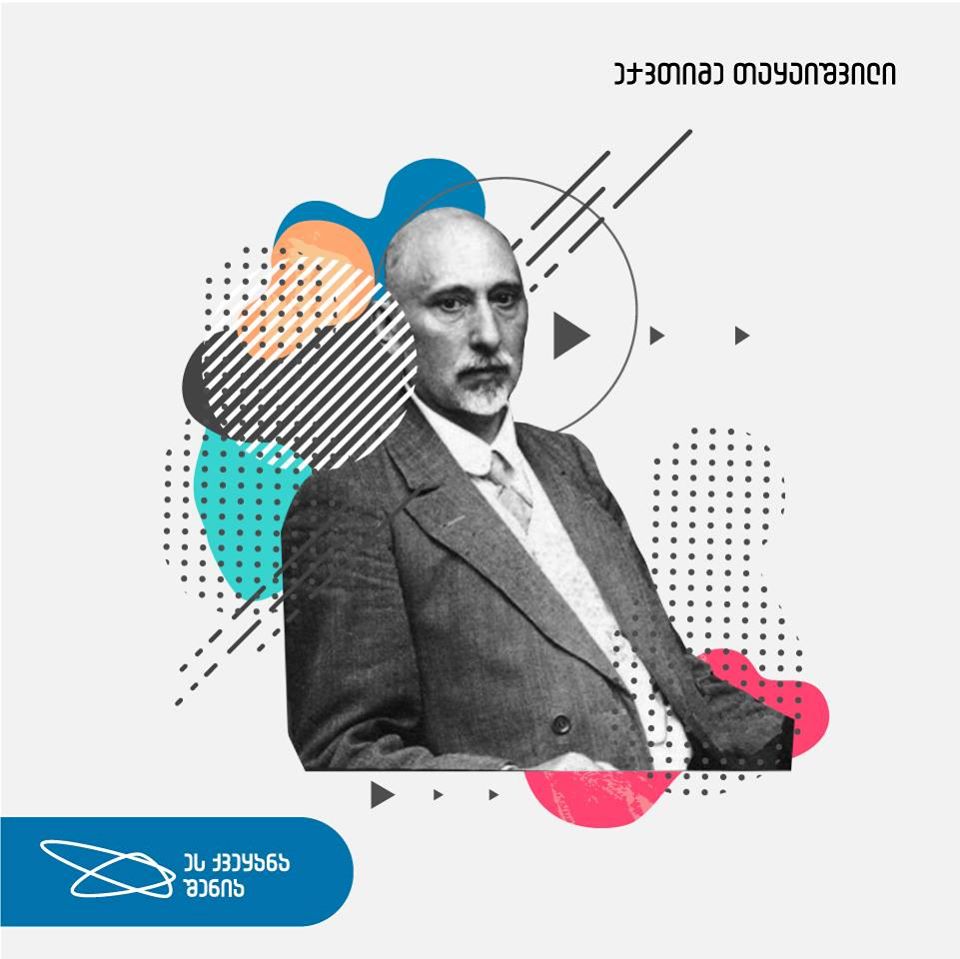Civil Society and Non-Governmental Sector
Popular





CSO web portal has interviewed Lasha Bakradze about the civil society and CSOs, i.e. non-governmental organizations.
Interviewed by Lali Shalvashvili
Mr. Bakradze, there is a permanent worldwide discussion over the term "civil society". Some in Georgia consider under this term non-governmental organizations, but on several occasions they refer to a broader notion, how do you interpret it?
Lasha Bakradze – I believe the Georgian society made a huge mistake, partly under the influence of western ideas, when it apprehended the civil society as non-governmental organizations. This was a tremendous mistake, because I firmly believe that the civil society is formed by individuals who think freely, exercise certain influence over the public, and who formally may not be even affiliated in certain organizations. When we talk about organizations, these should not be strictly non-governmental organizations only. This could be a concrete union set up around a specific issue, which fights for resolving a concrete issue. For instance, we can refer to the Sakdrisi issue, or unions as part of the campaign against cutting down the plants. I think such public groups have greater influence than CSOs. It must be especially stressed that CSOs established in Georgia are not set up from funding of its members, i.e. they are not established with a founding basis but someone sets them up and hires the staff later. They are mainly dependent on foreign grants and I criticize them over this very often because they primarily think who will announce a grant competition and what can they receive funding for, and not about the country's needs. Obviously, this cannot form the real civil society.
Individual freedom, freedom of assembly, etc. are crucial for the civil society. If the state does not guarantee this, forming the civil society is impossible. Civil society could not be formed in the Soviet Union because the authorities fought against it. For this very reason, building the civil societies in the post-Communist states proved to be difficult – we did not have this experience for a long time and unfortunately, developed partly in a wrong direction, because the West thought CSOs were the basis of civil society. Yet, it's hard to assert this was totally wrong, because there was no other foundation for building the civil society. If we want the civil society not to experience such problems in a long run, it is key to acknowledge that not only CSOs and organizations funded from somewhere, but individuals and humans build the civil society.
Classical definition of the civil society – is the society beyond the state, economic sector, family, and in Georgia I would add the church, which is active and unites around a concrete problem, can express its opinion and fight to resolve this problem. Therefore, civil society is a broader notion than the union and the unity of CSOs.
You have mentioned the society united around Sakdrisi and landscaping issues, they express opinions, are active around these topics, i.e. they are active groups... How would you overall evaluate civil society in Georgia?
Lasha Bakradze – It is rather weak, we witness this on a daily basis, civil society in Georgia is in embryonic form. It failed to develop some tool, with which it would have influenced or could influence now the authorities and policies pursue by the authorities then and now. Finding such tools is quite difficult, but such experience exists and the society should fit to it.
You refer to the western civil societies and their experience...
Lasha Bakradze – Yes, but often when we say the "West", we mean all legal, civilized states. Among them, Japan is not the West, but it has extremely interesting experience that we can learn a lot from, because on one hand there is a very traditional society and at the same time - modern. Civil society has achieved success in many African states as well, which is also a great example for Georgia, where there is a huge confrontation within the society. There was even worse confrontation in South Africa, but they have managed to take steps towards civilized co-existence – the oppressors have repented, while those who were oppressed years ago, have managed to at least partly forgive the oppressors. We can also bring the Ugandan example, where two confronted ethnic groups have annihilated each other, but there are efforts for them to live together. Therefore, a lot can be learned not only from the civilized western world, but at a glance from relatively underdeveloped societies as well. We could learn from them even more if we don't purse the nose, which is frequent in our country.
You said the civil society in Georgia does not have any influence over policies of the authorities, and on the other hand we fail to use knowledge and experience accumulated in various civil societies worldwide... What is the reason? Does all of this require more time?
Lasha Bakradze – I believe we had sufficient time but we failed to find tools, with which we would have forced the authorities to solve this or that issue. For instance, let's look at the activities around the Gudiashvili Square, which did not have significant influence on further developments. Numerous other examples could be brought to illustrate that the society lacks energy and patience. It does not comprehend that one rally and one petition does not solve everything, that the society has to stand together in a long-term perspective. There were people at these rallies who are not quite sympathetic or fond of each other, thus showing that there are issues of concern to the public. However, they don't have the power to unite, stand together and resort to long-term methods of protest, of course if finds so necessary for achieving the goal. This is not happening yet.
To draw parallels with the post-Soviet states, how did they manage to form the civil society there?
Lasha Bakradze – If we put the Baltic states aside and talk about the post-socialist countries, one could say they have achieved great success in this regard in Poland, Czech Republic, East Germany. A lot could be copied, seen and learned from the Baltic states as well as these countries. One of the key factors I believe lies in the fact that there is confrontation and dissenting opinions in all developed societies, but there are issues, around which they can unite. These countries had such tradition, but the lack of tradition is not the only reason – the Caucasian countries have traditions different from the European ones, which to some extent hinder the formation of the civil society.
Your approaches are quite critical, can you refer to any positive example from independence until now?
Lasha Bakradze – I have already brought several examples – Guerilla Gardening, protests around the Gudiashvili Square and the Sakdrisi issue, collection of signatures in relation to May 17 if you like. Civil society is in embryonic form.
Situation was the same, let's say, 10 years ago?
Lasha Bakradze – It is more active now, which raises grounds for optimism, that we are heading towards the better and people gradually learn how to protest against this or that issue. Involving artists in such protests is very interesting, and the form of protests is equally important. Let's recall May 17, when a small public group has organized a rally in the Pushkin Square with the shoes – this is a good and interesting form of protest, it did not have huge impact but has survived in the people's memories.
I will continue with criticizing the CSOs – several years ago one of the US organizations has funded a multi-cultural, multi-ethnic project in Georgia. Of course it wasn't a bad idea, and several CSOs have won and received funding. They have produced huge posters of people wearing ethnic clothes. This is a typical example of idle CSOs, which did not have the idea and which have repeated what was done in the Soviet Union for 70 years – when the photos of people wearing national clothes of 15 republics were exhibited. The outcome was exactly the same. This is a typical example of grant-guzzling and this is a clear example of how the money was made without the desire to achieve any outcome. By the way, I come across the criticizing of CSOs in other places as well. There is a very good Indian female writer Arundhati Roy, and I read her article about the work of CSOs in last decades in India. Situation looks a lot like the Georgian reality. My critique is not similar to that of the conservative-reactionary groups, who claim that CSOs corrupt the society or are fed with the western monies. The object of my critique is the fact that CSOs often do not think what this country needs, but they ponder about what could the money be received for. Nevertheless, I should say CSOs are very different from each other.
I was to ask exactly this – organizations do indeed differ by organizational structures, working style, attitude towards work, etc. You have mentioned a project of one of the CSOs, can this example be generalized with respect to entire sector?
Lasha Bakradze – It cannot be generalized, they differ from each other dramatically. I bring examples to make it clear what I criticize, what I don't like or do like. I can bring plenty of positive as well as negative examples. A CSO by itself is a great thing, I don't even discuss this. Neither it is bad that there are sources of funding for the CSO activities, I don't discuss this either. But they cannot exist only because someone will fund some of their activities. Often, when a certain issue is being discussed, I come across such an answer – "it's good but no one will fund this", or "we should get funding first", etc. If the society is healthy, I don't think it should be thinking only about which topics could be funded. Of course, doing a lot of things without funding would be simply impossible and it is extremely important that funding opportunities are available, but there are issues that could be solved easily and should not be postponed in the distant future. The society got used over 20-25 years to the fact that it is worth showing activeness if respective funds are available. This is very unfortunate, I don't like this and I don't think anyone likes it. I have one example - there is a small market by the Public Service Hall on Sundays – I would say this is the very embryo of the civil society, it's not organized by the authorities, people go there themselves, are happy with what they do and this has become a place of assembly, getting acquainted with others, and conversations.
To look at this a bit differently – are these people happy or they just sell something to receive income?
Lasha Bakradze – People don't go there only because they sell something, but because this is a certain means of communication and the market is self-organized, it is not planned from above – the initiative comes from the below. It seems this market has nothing to do with any of the problems, but we see the self-organization by individuals without any interference – this is the civil society. This is not the same as Tbilisoba, which is planned by the authorities and is a clear example of an event invented from above, reiterated by all subsequent authorities. This is a totally unnatural, non-public celebration. One can find similar events in other countries as well with the authorities supporting their organization, but this does not mean that the authorities plan literally everything abroad. I would say that Tbilisoba is a clear example of an anti-civil society.
But general public participates in Tbilisoba...
Lasha Bakradze – I understand that a lot of people go, but we are talking about the civil society and such events bring zero and adverse results in terms of activeness of the civil society because everything is managed from the above. We need baseline democracy. Let's take as an example a village channel, which may flood the village. What is the village population doing – they gather and demand that the authorities pay attention and the demand goes on. The fact that the village can do a small work by itself is lost. There was no bulldozer in the village, they did not have anything and they always depended on someone, they had to write the application in the collective farming, or the district (Party) committee and it still continues this way – these are the remains of communism. They don't want to do anything but to close the street and demand – they cannot go beyond this. This is the example of a failed civil society.
Antonio Gramsci discusses civil society in an extremely interesting context, according to which the Marxists have asked themselves – why did the revolution take place in Russia and not where Marx was saying – in the developed capitalist countries. Gramsci has a very interesting and right answer to this – he says that when the waves of revolutionary masses collided with the fortress of bourgeoisie, it turned out that this fortress had outposts in front of it and these outposts were the civil society. So basically Gramsci says that the civil society is a negative phenomenon for the revolution, but he also claims that the leftists can also use the civil society for their political battle and objectives, and that is why it's important. In Russia, where there was no civil society, the fortress that people thought was non-destroyable was taken down very easily.
I have referred to Gramsci's description of the civil society because there is one thing that had never occurred in Georgia over years – none of the authorities have wanted to give up more for the civil society.
So you mean that the authorities had to take into account problems identified even by the small groups?
Lasha Bakradze – Yes. Some may say this is not a function of the authorities, but this is not even a concern in established states. I refer to countries, where they do not acknowledge the extreme significance of a healthy civil society for the country's stability, of the very civil society that criticizes them. The civil society failed to find tools, with which it would force the authorities to take into account its opinions, because its demands and opinion was ignored for a very long time.
When you mention ignoring of public opinion and public demand, do you mean the Soviet past?
Lasha Bakradze – No, I mean the last rule of the National Movement, when the public opinion was ignored, and there was no communication between the society and the authorities. Propaganda is not a means of communication in democratic states, it is used in authoritarian countries. A healthy civil society is a crucial factor for the country's and nation's stability, which the authorities have failed to see before and hopefully will see in the future.
You talked about civil groups united around the Gudiashvili and Sakdrisi problems and their protest. Representatives of non-governmental sector were expressing their attitudes over these issues, and some of them were obviously participating in the rallies... What is the role of CSOs within the civil society?
Lasha Bakradze – The role of CSOs in Georgia is big because it is the most active part of the society, as well as the role of certain individuals is big. In 2004 a lot of people moved from the civil sector to the authorities and there was a great mourning. This also indicates that we do not understand what the civil society is – a person, individual of course can one day be in some organization, and on the other day in the authorities, and there is nothing tragic in this. Journalists, writers, painters are representatives of the civil society and it's not at all necessary for them to be in some CSO.
Of course, this is their right. To be more clear, what is the sector's role within the civil society and what do you think should it be?
Lasha Bakradze – The more CSOs are set up financially built on membership fees, the healthier and more enduring will such organizations be. Of course they can raise extra funds somewhere else, but the funding from their own members is of crucial importance – they would be able to resolve certain issues on their own. But this is problematic in our society because the financial state of the public is uninviting.
... And we bump into, let's say, a vicious circle – the public's financial state is uninviting, and most probably certain part of it will fail to pay the required membership fees and so on. Is there a way out?
Lasha Bakradze – Yes, it is partly a vicious circle and nevertheless, I think it's possible to make steps forward...
How would the non-governmental sector develop without the support from the west?
Lasha Bakradze – I cannot even imagine, because in the 1990s, in light of the total economic catastrophe, nothing would function at all. Along with criticizing it, I can say the sector does a lot – probes into the data of various state agencies, etc. Of course it would be very difficult to do this without funding, but we are witnessing the declining funding sources, and therefore we have to identify ways of further development and prevent the failure of activities. Should this have happened in the 1990s, the activities should have been terminated for good...
Obviously the sector's role is important, we cannot count on the authorities that is free of control. This requires organizations and organizational groups, which work on this or that issue for a long time and have relevant experience. It is clear that such organizations are needed and essential.
We have said that a certain part of the non-governmental sector cannot switch to a membership-based model yet. Why do you think active members of the society fail to establish membership-based organizations?
Lasha Bakradze – It is a very difficult question. On one hand we lack experience, and on the other hand there is the Georgian individualism in Georgia, which can be hardly called individualism, owing to which it is hard to unite around an idea. We clearly witness this in politics as well – in fact we do not have parties united around the ideas, but have groups united around the individual leaders. One should say the time for large parties is up in the West as well, i.e. a lot is changing not only here but abroad also, and we try to keep pace with the civilized world and stand in the row. We are heading more or less in the right direction, but the speed is non-satisfactory and a faster pace is desirable.
Does the non-governmental sector have impact on the authorities and the population?
Lasha Bakradze – It has and can have even larger impact. In Georgia, a lot depends on the attitudes of representatives of this or that CSO and the authorities, not only at institutional but at personal level as well. Impact on the society also depends on whether some organization is well-known or not. There can be many good CSOs that general public may not be aware of. Media also has an extremely narrow vision and we see a small group of people only, whereas much more is done and informing the society about this would be very important. Unfortunately, media does not or cannot do this. The authorities exercise the same approach - when their representatives see the need, they use the activities of this or that CSO, but when they do not have interest, they ignore them. There is an almost similar situation in the West, but the society there is much more active and the authorities know that their very voice sets the grounds for the victory of this or that party in the elections. The authorities in Georgia often turn a blind eye to this and prefer lining up with a more influential organization such as the church for instance.
List three values that the civil society must be built on...
Lasha Bakradze – Rule of law, democratic development, recognition of values common to all mankind.









